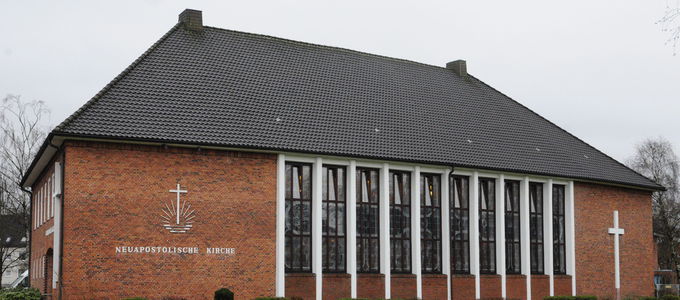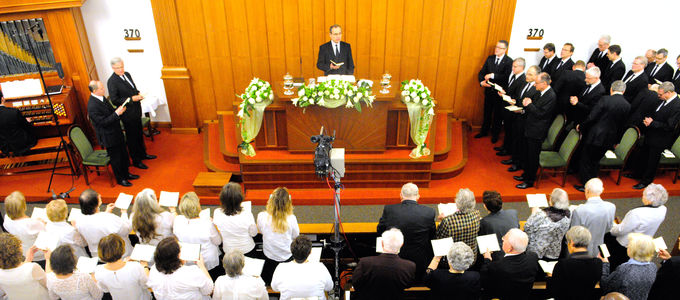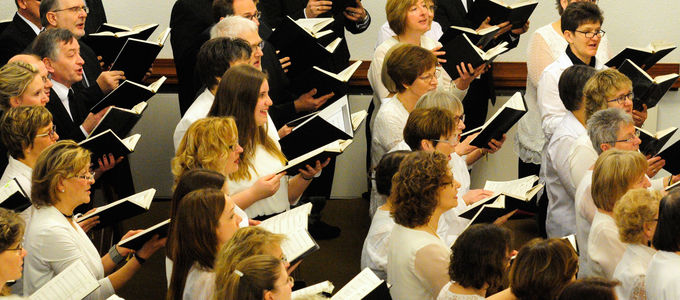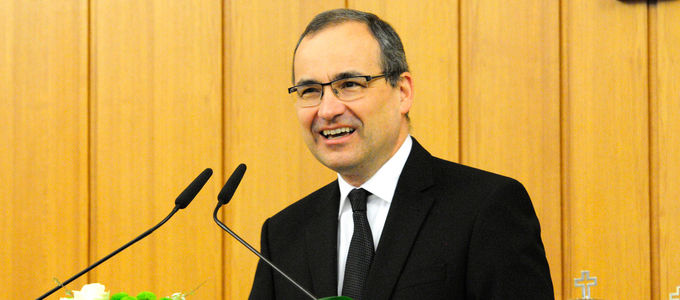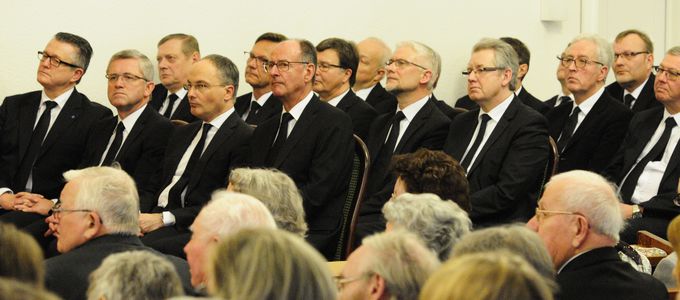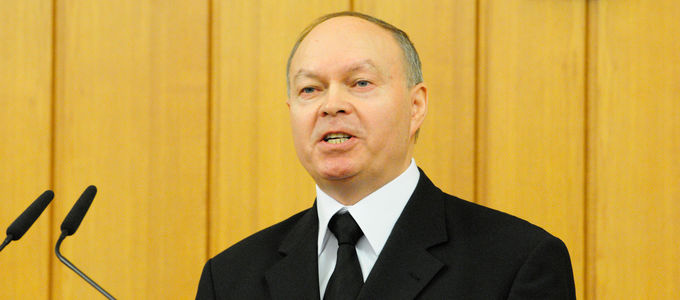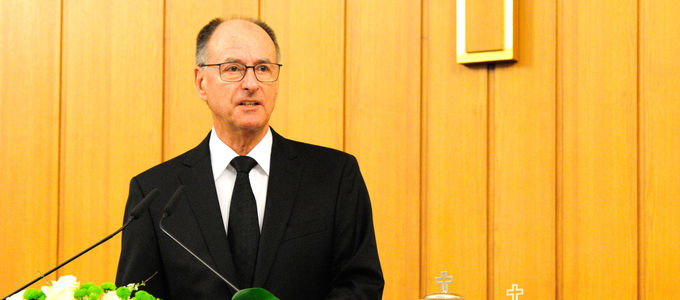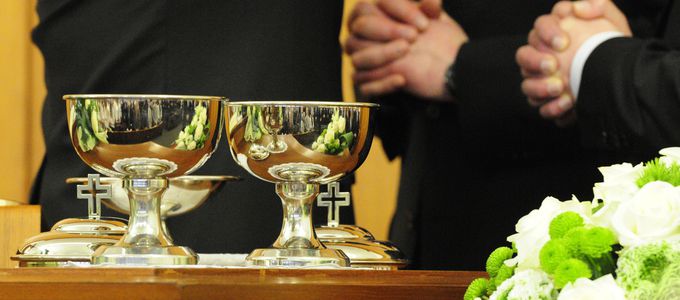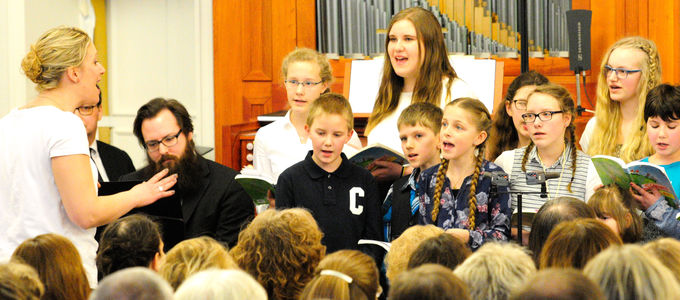“The work of redemption for the poor and lowly”
Sick, poor, weak, or simply different? No human being is forgotten by God—whether here or in the beyond. This is something the Chief Apostle makes clear. And what’s more: it is especially for these souls that Jesus is there.
“Oh, give thanks to the Lord! Call upon His name; make known His deeds among the peoples!” — This was the Bible text from Psalm 105: 1 around which the divine service with Chief Apostle Jean-Luc Schneider revolved on 5 March 2017 in Neumünster, Germany.
“Let us make this divine service for the departed a divine service of thanks and praise,” said the Chief Apostle. “With human intellect we cannot grasp these things, but through the activity of the Holy Spirit we can recognise that God grants salvation, both here and in the beyond.”
Alone this “is already grounds for gratitude, namely that we know: death is not an obstacle for God,” he emphasised. “He can even save in the beyond. We are thankful for this. And let us proclaim this by continuing to pray for these souls in the beyond.”
Appreciating each and every one
“The Lord Jesus came to this earth for the salvation of the small, the lowly.” This is not merely a reference to spiritual poverty, but also material poverty. “This is something He proved throughout all of His activity on earth.” After all, “when a person lives in such poverty, there is an earthly need,” said the Chief Apostle, and went on to list the resulting feelings such as despair and shame. “This also exists in our congregations.”
“After all, we live in a society in which achievement is practically a god,” he said in reference to the lowly. “But there are also many people who are not able to achieve so much. They are then left behind and thus pushed off to the margins of society. Can you imagine the emotional need that comes into being as a result?”
“How beautiful it is to know that Jesus came for them especially, and that He gives them this glad message: Here you can have everything. For nothing! Here it is not all about achievement. Here it is not all about wealth. All you need to do is believe!”
“Let us prove again and again that our appreciation of our neighbour is completely independent of his wealth, of his achievements, of his position in society,” appealed the Chief Apostle. “Here is the work of redemption for the poor and for the lowly!”
Accepting each and every one
“Jesus grants comfort. He can alleviate all pain,” said the Chief Apostle in reference to those who suffer from illness or live in conditions of war. “This is a promise from God. No matter how great the calamity, no matter how great the suffering, the day will come—at the latest in the new creation—when no man will ever think about this pain or this suffering again.”
Jesus has also come to overcome everything that divides. “How much misery is there in this world just because people still have trouble dealing with the otherness of their neighbour?” However, “in Christ, we can overcome all differences.” And “in our ranks let us demonstrate again and again that the Lord Jesus gives us the strength to accept our neighbour just as he is!” After all, “God also accepts me. But I cannot attain salvation if I do not change.”
Forgetting no one
Jesus also came, not least of all, to save the sinner. “It is so beautiful to know that no sin is too great. Jesus can forgive anything for those who believe in Him. Is that not worth a little thank-you?” This gratitude is something the Church leader sees in actions, however. “Let us prove this. Here there is grace! Here there are people who forgive!”
Finally, he also talked about brothers and sister in faith who have left our fellowship: “We are so grateful that our great God, our Father, gives us the assurance that He does not forget His children, even if His children have forgotten Him.” For this reason it is also important for the congregation to show their former companions on the path of faith: “We have not forgotten you. You are always welcome. We love you.”
“Let us give thanks to God today that He grants us salvation both here and in the beyond,” concluded the Chief Apostle. “Let us give thanks to God that He never forgets anyone, that He never throws anyone away, and that for Him, no one is eternally damned. He grants His grace to all. Praises be to God, our Father!”


